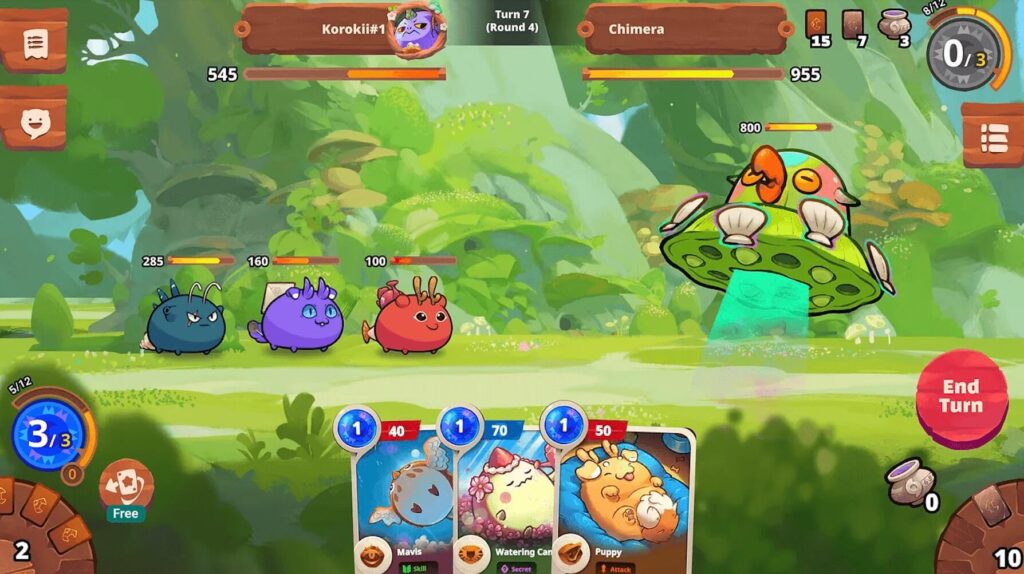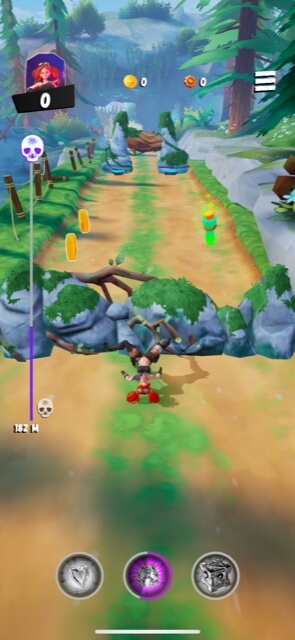 |
Web3 games won’t be using Discord channels forever, says Sky Mavis co-founder
Discord community groups for blockchain games can be overwhelming and annoying to navigate, but don’t worry — they won’t be around forever, according to the co-founder of the company behind the hit game Axie Infinity.
“The reason why these games are using Discord and Telegram to build their communities is a lot due to gatekeeping from these publishers or the app stores because blockchain games can’t get distribution from normal channels such as iOS in the same way others can,” Sky Mavis chief operating officer Aleksander Larsen tells Web3 Gamer.
Because of this, blockchain games are at a disadvantage compared to traditional ones right from the start, and developers have been forced to find other ways to get the word out without essentially resorting to mailbox flyers.
“So you’re forced to kind of build your own distribution channel which is basically Discord or your own mailing list so that you can reach your players in noble ways.”
Video game corporation Valve has long made it clear that content related to cryptocurrencies or nonfungible tokens (NFT) will not be allowed on Steam, its online retail platform.
However, Larsen thinks that as blockchain gaming gains wider adoption and more popular titles emerge, the harsh anti-crypto statements from gaming publishers will die down. When that happens, rallying a community and reaching their target audience will be easier than relying on Discord, as many developers do now.


“I think we’re going to see more of that to an extent in terms of there being distribution platforms that game studios are able to tap into so that they can build up their first 1,000 true fans and the first 10,000 acquire users through traditional means,” he says.
Larsen knows his stuff fairly well — he’s one of the co-creators behind Sky Mavis’ blockchain-based gaming metaverse Axie Infinity, which peaked at 2.8 million daily active users.
Now, with the launch of Ronin Forge, he’s using his knowledge of making successful games to help developers create the next big hit.
It is an early access program for experimental Web3 games, providing approved game developers with a $50,000 grant, technology infrastructure and access to build on the Ronin network, an Ethereum sidechain that hosts Axie Infinity.
He’s looking for games with the potential for mass adoption and ones that can withstand the test of time.
“What we’re looking for right now is more sustainability in these games, making sure that these economies last longer, and that can only happen when the games become richer from a meta-game perspective,” Larsen explains.
He’s also not really into mediocre games with spruced-up fancy graphics.
“I would say we need higher quality games, not higher quality in terms of graphics, higher quality in terms of maybe storytelling,” he says.
“I’m more interested in that rather than just fancy graphics,” he laughs.
Ronin Forge is now taking applications with up to six teams on a rolling basis. Ideally, applicants should have a game in the late alpha or early beta stages, aiming for a global launch in three to six months.
SocialFi’s “emotional” bond is key to big spenders
SocialFi might be the key to getting Web3 gamers hooked longer and spending more cash, says OpenSocial Protocol co-founder Allen Ng.
“We tend to spend more time and money when we aren’t alone. The average time and money spent on mobile gaming is way higher than on consoles,” Ng tells Web3 Gamer, reiterating that SocialFi — which is a blend of social media and decentralized finance (DeFi) — could be the key to boosting blockchain-based games to the same level of success as Niantic’s Pokemon Go and Supercell’s Clash of Clans.
“The most successful mobile games from Clash of Clans to Pokemon Go, all have a strong social layer that enhances user retention, gaming experience, and also ARPU (average revenue per user),” he says.


Ng explains that the social aspect ramps up competition among users and, in a way, gives them bragging rights — a big aspect of social media. He points to platforms like X as a prime example.
“X, fundamentally, is a game of social status, who’s going to farm the highest amount of retweets, who’s gonna dunk on or make fun of an “opponent” with a different opinion than mine,” he says.
“Web3 social is needed to help games perform transactions between each other, and not just between gamers and the game,” he adds.
Ng reiterates that, ultimately, when it comes to gaming basics, people play online games to hang out with their mates.
“You’re creating emotions and bonding between players or between teams. It will not be just you and “the matrix” anymore,” he adds.
Read also
Features
Bitcoin is on a collision course with ‘Net Zero’ promises
Features
Crypto mass adoption will be here when… [fill in the blank]
Sure, it’s fun to see all those weird usernames floating around, but it’s the camaraderie that really counts.
“Social is a crucial aspect of gaming. You play online games because your friends are there,” he says.
OpenSocial has recently launched a $15 million ecosystem fund to “empower” the next generation of Web3 social apps.
Ng explains that its first decentralized application (DApp), SoMon, aka “Social Monster,” is a Reddit-like forum with true community ownership, UI-layer composabilities, and layers of financial incentives.
“We expect strong adoption of SoMon by gamers, not just because of the rewards and monetization mechanics, but because it’s a fun experience to chat about games we love and connect with like-minded people,” Ng explains.
Play-to-earn blockchain arcade runner game MetaRun, built on Epic Games’ game engine Unreal Engine 5 and powered by the BNB Chain, is a super simple runner game — just run as far as you can, dodge enemies and objects, and collect rewards.
It’s actually one of my favorites so far because, for some reason, I’m into frustrating games that never quite satisfy me…
Read also
Features
$3.4B of Bitcoin in a popcorn tin: The Silk Road hacker’s story
Features
‘Sic AIs on each other’ to prevent AI apocalypse: David Brin, sci-fi author


This game looks easy, but you know how it goes. Fall over a stick, start again. Bump into an enemy, start again. Hit a new high score, spend the next hours trying to beat it, fall over another stick, repeat.
If you’re into popular arcade runners like Temple Run, Jetpack Joyride, or Subway Surfers, this game could be worth a go if you also want to earn crypto for your time.
You can rack up Opal (OPAL) cryptocurrency tokens for winning runner battles. You can also build up your character NFT by entering battles, and then you can either sell your NFT on the MetaRun marketplace or hold onto it.
There are a variety of different maps to explore, which adds a lot more substance to the game compared to the same old maps you see in other arcade runner games.
These maps are much more detailed than any of the ones in other runner games.
Sometimes, it feels like I’m sprinting through Europe; other times, through the jungle.
The audio and style remind me of Crash Bandicoot. If you were a fan of that ’96 classic, you might feel a bit of that mom’s basement nostalgia, too.
The graphics are sharper than Crash Bandicoot, but let’s be honest — arcade runner games like this don’t need mind-blowing graphics to be fun.
Other News
— Sky Mavis has announced that with the assistance of Norwegian authorities, it has recovered $5.7 million from the notorious Ronin Bridge hack of 2022.
— Metaverse firm The Sandbox just nailed down $20 million in a funding round with a valuation cap of a billion dollars.
— The Arbitrum Foundation, the team responsible for the Ethereum rollup-based layer-2 network Arbitrum, has committed to set aside 225 million Arbitrum (ARB) tokens valued at approximately $215 million to be distributed over three years through the newly established Gaming Catalyst Program.
— American fast food chain McDonald’s launched the “My Happy Place” metaverse in Singapore, allowing locals to build virtual burgers and participate in other activities.
Subscribe
The most engaging reads in blockchain. Delivered once a
week.




Ciaran Lyons
Ciaran Lyons is an Australian crypto journalist. He’s also a standup comedian and has been a radio and TV presenter on Triple J, SBS and The Project.
Credit: Source link




